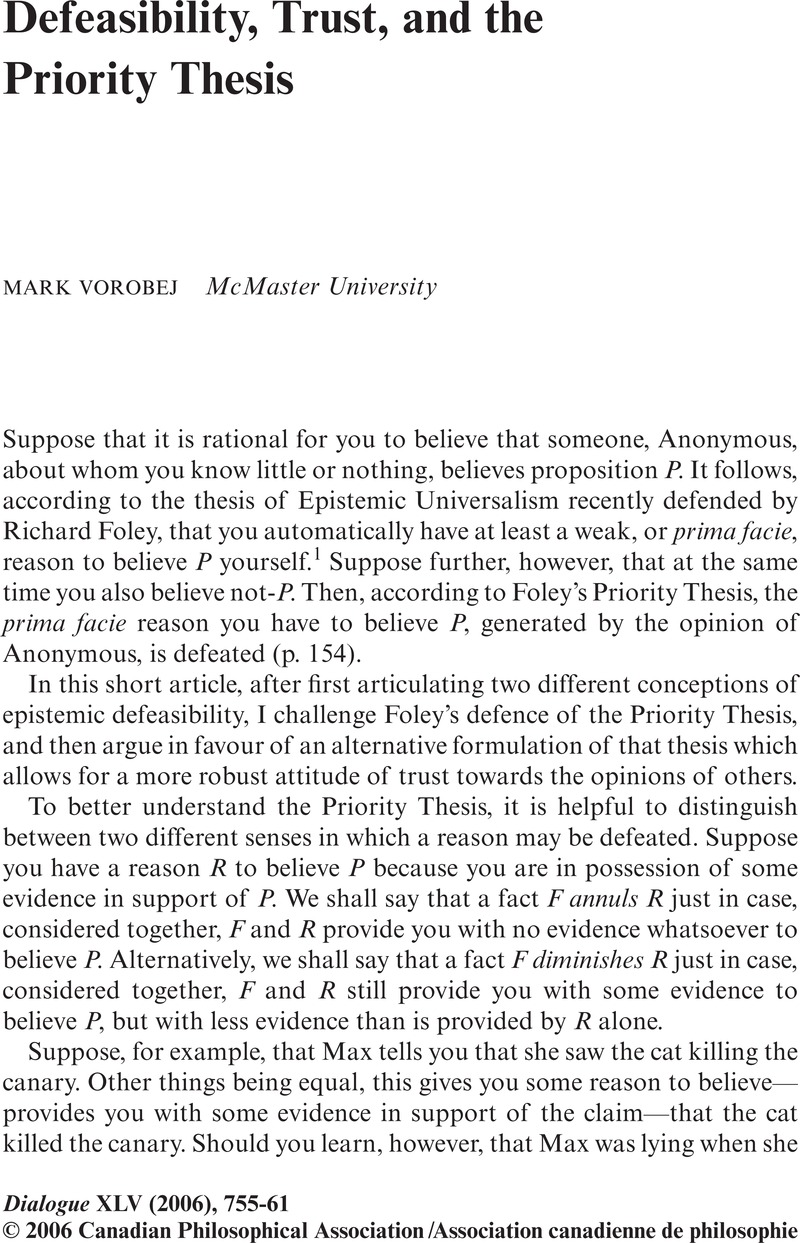No CrossRef data available.
Article contents
Defeasibility, Trust, and the Priority Thesis
Published online by Cambridge University Press: 27 April 2009
Abstract

- Type
- Interventions/Discussions
- Information
- Dialogue: Canadian Philosophical Review / Revue canadienne de philosophie , Volume 45 , Issue 4 , Fall 2006 , pp. 755 - 761
- Copyright
- Copyright © Canadian Philosophical Association 2006
References
Notes
1 Foley, Richard, Intellectual Trust in Oneself and Others (New York: Cambridge University Press, 2001), p. 105CrossRefGoogle Scholar. All further page references in the text are to this work.
2 Foley denies that the opinions of others are necessarily prima facie credible. Therefore, it is logically possible to consistently trust oneself without trusting others. Nonetheless, for empirical reasons, the “pressure” created by self-trust to grant credibility to others is “extremely difficult” to avoid (p. 107).




